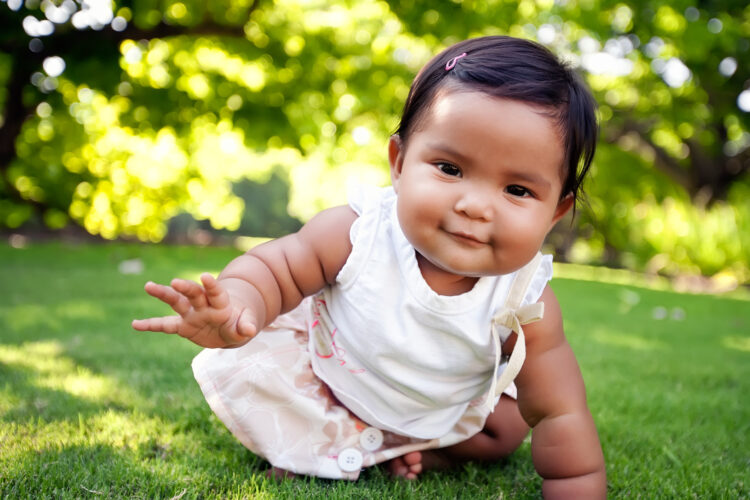By Aaron Miller-
Scientists are extending ongoing research into why a vast majority of children and adults cannot remember anything before the age of 2 years of age. The inquiry has been sparked to help explain and understand the quality of human memory, and the stage at which babies become aware of their own existence.
Scientists have long highlighted the phenomenon of infantile amnesia in explaining how infants form only limited memories of themselves. Within the first few days of life, infants can recall their own mother’s face and distinguish it from the face of a stranger. A few months later, infants can demonstrate that they remember lots of familiar faces by smiling most at the ones they see most often.
Scientists have continued to examine different kinds of memories besides those that are autobiographical in their quest to establish those factors that influence memory, especially the memory of a child. There are semantic memories, or memories of facts, like the names for different varieties of apples, or the capital of your home state. There are also procedural memories, or memories for how to perform an action, like opening your front door or driving a car.
Research from psychologist Carolyn Rovee-Collier’s lab in the 1980s and 1990s which showed that infants can form some of these other kinds of memories from an early age. Rovee-Collier devised a task that was sensitive to babies’ rapidly changing bodies and abilities in order to assess their memories over a long period.
In the version for 2- to 6-month-old infants, researchers place an infant in a crib with a mobile hanging overhead, they measure how much the baby kicks to get an idea of their natural propensity to move their legs.
The version for 6- to 18-month-old infants is similar. But instead of lying in a crib – which this age group just won’t do for very long – the infant sits on their parent’s lap with their hands on a lever that will eventually make a train move around a track.
At first, the lever doesn’t work, and the experimenters measure how much a baby naturally presses down. Next, they turn the lever on. Every time the infant presses on it, the train will move around its track. Infants again learn the game quickly, and press on the lever significantly more when it makes the train move.
Rovee-Collier and colleagues concluded that at 6 months, if infants are trained for one minute, they can remember an event a day later. The older infants were, the longer they remembered. She also found infants could remember events for longer by training them for longer periods of time, and by giving them reminders – for example, by showing them the mobile moving very briefly on its own.
Scientists have used this to establish that infants can be trained to remember for long periods of time from the age of 6 months, but are still trying to establish why people can’t form autobiographical memories beyond the age of 2, if infants can form memories at 6 months.
One angle academics are exploring is that autobiographical memories require you to have some sense of self. You need to be able to think about your behavior with respect to how it relates to others.
Researchers first tested this ability by using a mirror recognition task called the rouge test in the 1970’s. It involves marking a baby’s nose with a spot of red lipstick or blush – or “rouge” .
Researchers then placed the infant in front of a mirror. Infants younger than 18 months just smile at the cute baby in the reflection, not showing any evidence that they recognize themselves or the red mark on their face. Between 18 and 24 months, toddlers touch their own nose, even looking embarrassed, suggesting that they connect the red dot in the mirror with their own face – they have some sense of self. So the notion of self cognizance is established in infants at their earliest, at the age of 2 years of age.
Another possible explanation for infantile amnesia is that because infants don’t have language until later in the second year of life, they can’t form narratives about their own lives that they can later recall. This means the lack of self expression prevents them from being able to accurately reflect on a history during a time in which they cannot consciously express their experiences and connect a relationship between themselves and others.
Another possibility is that the hippocampus, which is the region of the brain that is largely responsible for memory, isn’t fully developed in the infancy period.
However, it suggests that it is nearly developed around age two and a half since this is the agreed earliest age among researchers that some people can remember.
Understanding how the memory works is a useful process in establishing why some aspects of our lives simply vanish from our memories completely, and others don’t.
It is also useful in enlightening us about the extent to which the memory can be trained, it’s limitations, and to what extent memory is connected to intelligence.
There is a widespread view among lay people that memory has has no connection to intelligence, but this is inaccurate.
Psychological experts say some levels of memory is indeed connected to intelligence, but there are some levels of memory that can be trained to a certain degree.
Academics are exploring the topic deeper.
This research details of this article was brought to our attention by Phoebe Roth, of the Conversation.Com




